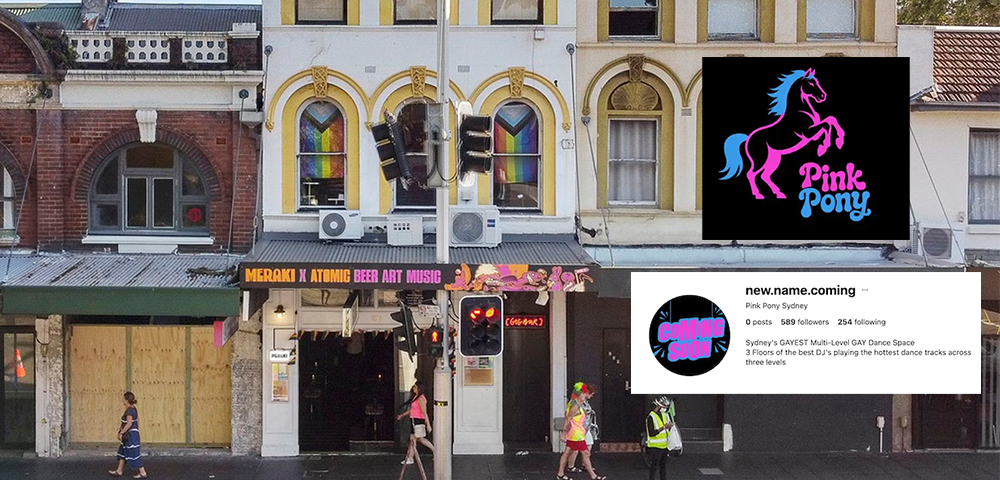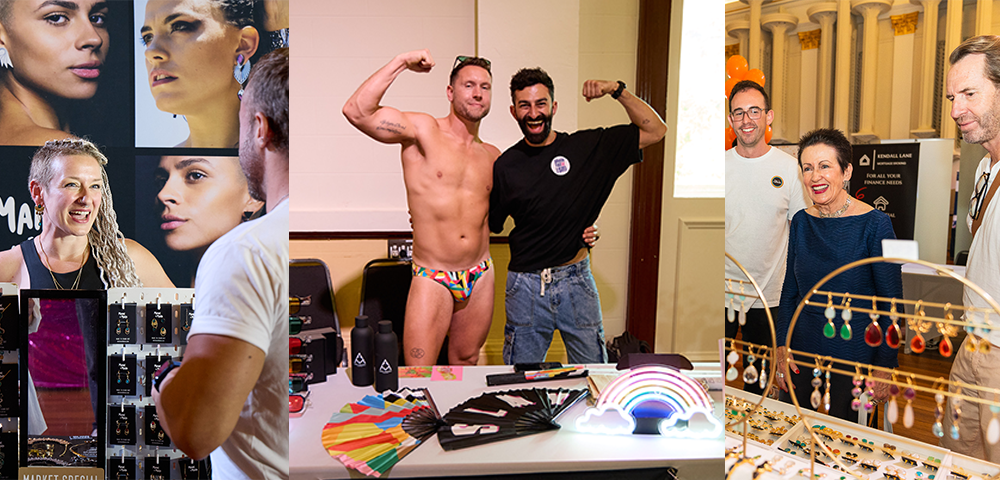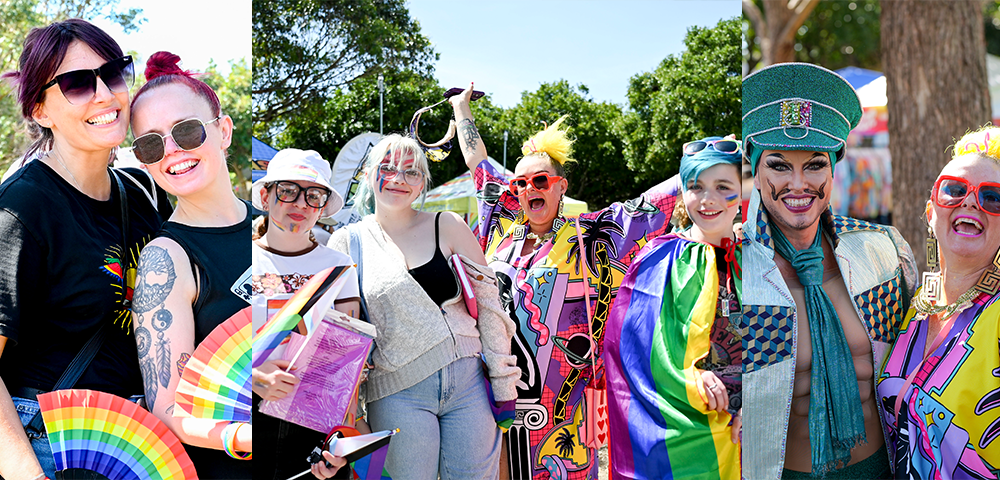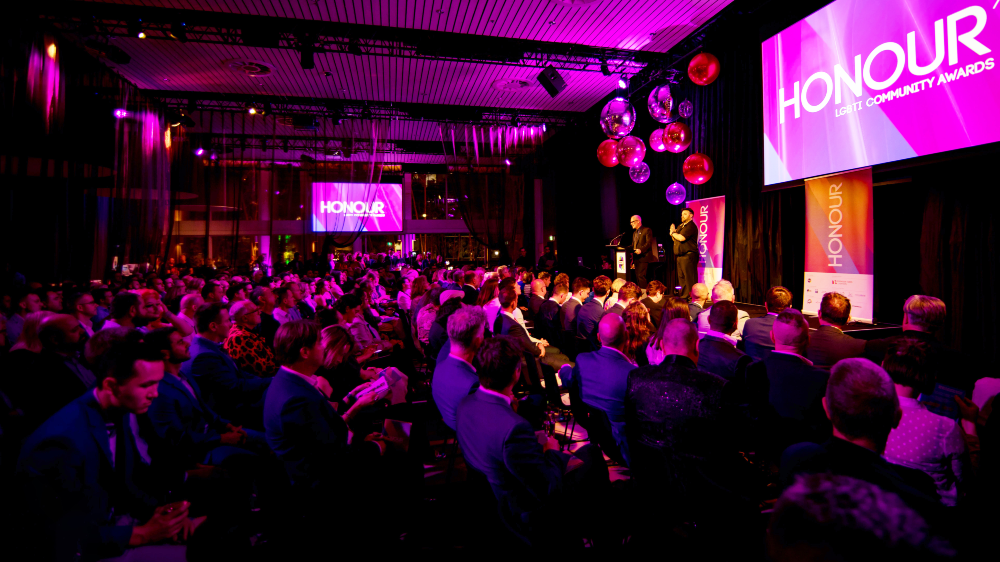
Naming The Beast
The collapse of Sydney Gay+Lesbian Mardi Gras is a catastrophe. Nobody understands that more intimately than me. As we debate the details of the 2002 crisis and look towards the creation of a new Mardi Gras, it’s vital that we look closely and honestly at the type of organisations and politics we have created over the past 25 years -“ or we will have no community organisations in the future.
We have wanted Mardi Gras to be and do everything -“ this is understandable. What we experience on the night of the parade and party is unbeatable, that feeling of the whole community coming together to celebrate and demonstrate. The mistake is to expect any organisation day in, day out, to somehow capture that feeling. No structures or constitutions can embody that kind of politics, because it is a politics of pride and of sensation. You can’t structure passion. It doesn’t work like that.
When I arrived at Mardi Gras in March last year, I took aim at what I defined as a culture of arrogance which defined the organisation in most of its dealings. I was a little hasty, I admit, but in retrospect not far off the mark. Too many people felt abused, worn out, excluded or let down by the institution that Mardi Gras had become. Too few people felt a level of ownership over the structures and public debate -“ and this in turn excluded other people, particularly younger people with changing views on sexual identity and politics.
Some years ago the organisation formed a skin of resistance to protect itself from the weight of those expectations, from interaction with the outside world. Communications between staff, committees and the outside world were tied up in so many levels of procedure that people eventually gave up or got mad. The same rigidity was true of internal communications, including those around budget planning, financial forecasting and cash control.
This culture of arrogance is founded on a climate of fear. I can’t properly unravel the psychology of it, but it isn’t too hard to imagine successive groups of hard-working and worn-out people over many years trying to do everything they could to protect what they love.
Several reformist boards (including the last one), staff, volunteers and members have been actively defeated in attempts to implement change at many levels. Any broad attempt at organisational change was opposed -“ even the proposal for electronic renewal of membership was voted down at the AGM. The introduction last year of basic processes such as cash flow controls and purchase orders was treated like the release of a deadly snake into the office. A request from the parade committee for its budget was referred to the Spanish Inquisition. And oh, the endless tantrums!
How can any community group create goodness, let alone make good or hard decisions, in that environment? We now need to name and acknowledge the underlying force that has prevented, for nearly three years, attempts at real reform, and which distorted the operational politics of SGLMG.
Mardi Gras had become such an institution that it had its own right and left wing. The right set the agenda by supporting status quo. Attempts at reform by the left were blocked by a reactionary right wing because they were scared of what change might bring. Those on the left lived in fear of the droning of the Greek chorus on the right and were prey to self-censorship and defensiveness. Both tried to undermine and out-manoeuvre one another. It’s that simple.
Many on the right would reject that definition, but I’m afraid it’s true. Some of it is generational. Some of it is rigidity or fear of the unknown. It’s also about attitude, and while it went on regardless of the financial position of the company, the recent crisis brought out the worst, as we witnessed performances worthy of daytime soap opera.
As Mardi Gras hit the wall, there were shenanigans from certain circles surrounding the organisation that we’re not supposed to talk about, because the truth is too shameful: release of information to mainstream media; vile and sometimes defamatory voicemails, emails and letters; secret meetings of self-appointed king-makers; attempts to buy positions on the board, or staff resignations, with conditional offers of loans or bank guarantees; dishonourable, defamatory and misleading anonymous posts on internet sites; the refusal of so-called community leaders to support fundraising or lobbying efforts for their own murky reasons. All these are appalling symptoms of a self-destructing world that has little to do with community, and it is time somebody said it out loud.
Mardi Gras was never meant to be that way. It was never meant to be an institution at all. But such a beast it has become, surrounded by a thorny thicket of its own making. Let’s just leave it there, muttering to itself, and move on.
The challenge now is to focus on the marvellous things about Mardi Gras. It is the passion, the creativity, the events and the people that matter, not the structures and the egos. It is a mistake to try to project the hopes or structures of the past onto a future Mardi Gras, to recreate Sydney Gay+Lesbian Mardi Gras the institution. There were too many basic things wrong with its culture that denied its spirit. It must start afresh.
This is something of which the board of New Mardi Gras seems acutely aware, bless ’em. It has the chance, and the expertise, to build a community development model that is inclusive, relevant, and works. Everyone else has to learn to let go -¦ and to lighten up.
But the community as a whole can’t evolve without also challenging those gloomy aspects which deny its essential creativity and integrity, and which encourage individuals to act with contempt or outright aggression towards others or other groups.
It seems, in this broader cultural sense, that little has been learned from the demise of SGLMG. It is truly awful and rather embarrassing to watch those anonymous cowards on Pinkboard launch their mindless campaigns of invective and innuendo against anyone and anything.
It saddens me to hear that old bruising Mardi Gras arrogance echoed now by organisers of the Gay Games as they deny the numbers that seem to be stacking up against them, and seek to place blame elsewhere -“ it’s a reminder of the approach which made Mardi Gras what it was over the last two decades. It would be the greatest irony of all if those who were most publicly critical of SGLMG during the crisis had failed to heed the crucial lessons of Mardi Gras’ demise, lessons not only about financial forecasting and difficult budgeting decisions, but also of the long-term effects of an inflexible approach, perhaps carried from a historic Mardi Gras into the present of the Gay Games.
And there’s the rub. Our entire community infrastructure is in danger if we don’t address -“ frankly, publicly, and also within each of us -“ fundamental questions about the culture of our organisations, their interactions, and our interactions with each other. We must talk about the lessons we have learned this year, without rancour, so that those same mistakes of hubris and inflexibility are never repeated.
This is not a naive plea for people to play nicely together. It is a gale-force warning.
Mardi Gras could never have been everything everyone wished it to be. But perhaps now, out of the storm, can come the opportunity to create something this queer community deserves.
Â
Kelly Gardiner is the former CEO of SGLMG.
Â
Â
Â









